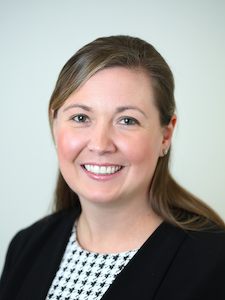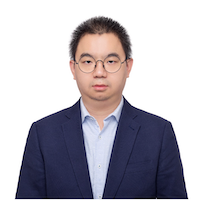IEEE ICDH 2021 - Distinguished Speakers
ICDH 2021 Distinguished Speaker
Wendy Nilsen, NSF
The Future of Smart Health in the Wake of a Pandemic
Tuesday Sept 7, 18:50 - 19:30 UTC

Wendy Nilsen, Ph.D. is the Acting Deputy Division Director in the Information and Intelligent Systems Division of the Computer and Information Science and Engineering Directorate at NSF. She is also the lead Program Director in the NSF-NIH joint initiative Smart Health and Biomedical Research in the Era of Artificial Intelligence and Advanced Data Science program. Her work has focused on the intersection of computing and human functioning. Her interests span the areas of sensing, analytics, cyber-physical systems, information systems, machine learning, artificial intelligence and robotics. She also serves as cochair of the Health Information Technology Research and Development working group of the Networking and Information Technology Research and Development Program and, serving on numerous federal technology initiatives. Prior to joining NSF, Wendy was at the National Institutes of Health.
ICDH 2021 Distinguished Speaker
Dana Wolff-Hughes, NIH/National Cancer Institute Division of Cancer Control & Population Sciences
Leveraging digital technologies for population surveillance: opportunities and challenges
Wednesday Sept 8, 16:30 - 17:50 UTC

Dr. Dana Wolff-Hughes is a Program Director in the Risk Factor Assessment Branch (RFAB) of the Epidemiology and Genomics Research Program (EGRP) in NCI's Division of Cancer Control and Population Sciences (DCCPS). In this capacity, she supports work which validates and utilizes digital technology for cancer risk factor assessment (including physical activity, sedentary behavior, and sleep) in research and population surveillance. Dr. Wolff-Hughes’s scientific interests include novel methods and analytical approaches for risk factor assessment using digital technology, health information technology, and temporally linked contextual data. She is particularly interested in how the accuracy of physical activity measures influence dose response relationships, with a focus on methods to better interpret and understand data from digital technology.
ICDH 2021 Distinguished Speaker
Daqing Zhang, Peking University
WiFi-based Contactless Human Sensing: Theory and Healthcare Applications
Friday Sept 10, 2:30 - 3:50 UTC

Abstract: With the ubiquitous deployment of Wi-Fi infrastructure in ordinary homes, WiFi-based contactless sensing has become an ideal way for elder care and health monitoring. In this talk, I will introduce the Fresnel Zone model as a new theoretic basis for non-intrusive human sensing with Wi-Fi signals. Building on the Fresnel Zone model and a series of techniques, millimeter-scale human activity sensing could be achieved with commodity WiFi devices. I will use contactless and continuous human respiration/daily activity monitoring applications to demonstrate the effectiveness of the proposed theory and techniques. By analyzing an elder’s respiration pattern and daily activity log, we could inform an elder’s daily habits, health status, abnormal events and gradual behavior changes.
Speaker Bio: Daqing Zhang has been a Chair Professor at Peking University, China and Telecom SudParis, France. His research interests include ubiquitous computing, context-aware computing, big data analytics and Intelligent IoT. He has published more than 300 technical papers in leading conferences and journals, where his work on context model and WiFi-based sensing theory is widely accepted by pervasive computing, mobile computing and service computing communities. His research work got over 20,500 citations with an H-index of 71 (according to Google Scholar). He is the winner of the Ten Years CoMoRea Impact Paper Award at IEEE PerCom 2013 and Ten Years Most Influential Paper Award at IEEE UIC 2019, the Honorable Mention Award at ACM UbiComp 2015 and 2016, etc.. He served as the general or program chair for more than a dozen of international conferences, and in the editorial board of IEEE Pervasive Computing, ACM TIST and ACM IMWUT. He obtained his PhD from University of Rome “La Sapienza” and is a Fellow of IEEE.
ICDH 2021 Distinguished Speaker
Haoyi Xiong, Big Data Laboratory, Baidu Research
From Personalized Medicine to Population Health: an mHealth Sensing Approach
Friday Sept 10, 2:30 - 3:50 UTC

Abstract: Mobile Health (mHealth) Sensing Apps have been widely used as practical approaches to collect behavioural and health-related information from individuals, and provide timely intervention to promote health and well-beings, such as mental health and chronic cares. As the objectives of mobile sensing could be either (a) personalized medicine for individuals or (b) public health for populations, in this talk we propose to categorize the design of these apps/systems in two paradigms — (i) Personal Sensing and (ii) Crowd Sensing paradigms. While both Apps in sensing paradigms might incorporate with a large number of ubiquitous sensing technologies, such as wearable sensors, mobility monitoring, mobile data offloading, and cloud-based data analytics to collect and process sensing data from individuals, we present a unified yet generic design framework that could implement Apps in both paradigms with a three-step approach: (1) Sensing Task Creation & Participation, (2) Health Surveillance & Data Collection, and (3) Data Analysis & Knowledge Discovery. The proposed design framework also helps figure out the potential directions of mobile sensing for health from both personalized medicines and population health perspectives.
Speaker Bio: Haoyi Xiong received the Ph.D. degree in computer science from Telecom SudParis jointly with Pierre and Marie Curie University, Paris, France, in 2015. From 2016 to 2018, he was a Tenure-Track Assistant Professor with Missouri University of Science and Technology, Rolla, MO, USA (formerly known as University of Missouri at Rolla). From 2015 to 2016, he was a Research Associate with the Department of Systems and Information Engineering, University of Virginia, Charlottesville, VA, USA. He joined Big Data Laboratory, Baidu Research, Beijing, China in 2018 as a Staff R&D Engineer and Research Scientist, where he is currently a Principal R&D Architect and Research Scientist. He also holds an honorary appointment as a Graduate Faculty Scholar affiliated to the ECE PhD Program at University of Central Florida, Orlando FL, United States. His research interests include ubiquitous computing, mobile sensing, and deep learning. He was a recipient of IEEE TCSC Award for Early Career Researchers and is an IEEE Senior Member.